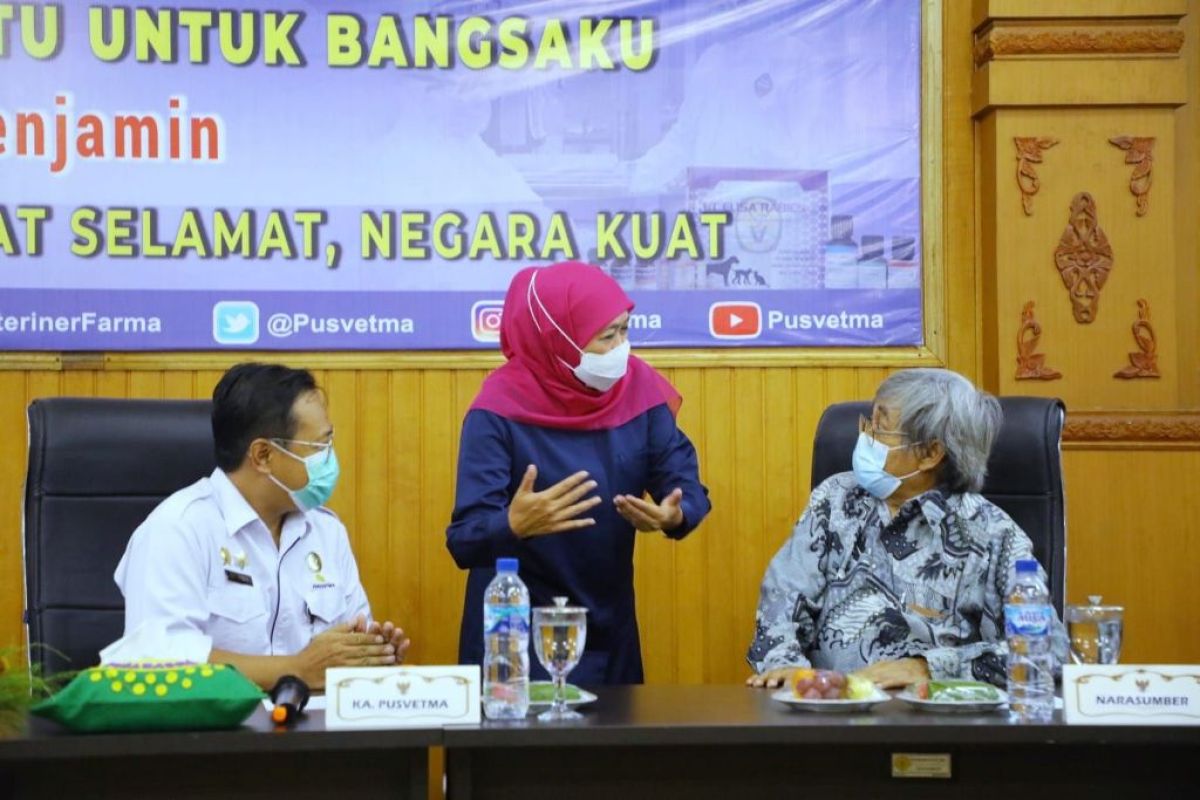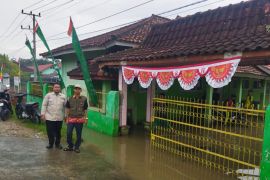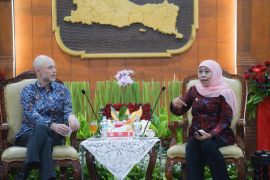Surabaya, East Java (ANTARA) - So far, 15 districts and cities in East Java have been categorized as "green zones" or regions that are free from foot-and-mouth disease (FMD) in livestock, East Java Governor Khofifah Indar Parawansa has informed.
"In those 15 regions, the livestock are still protected and can fulfill the cattle needs for the districts and cities in need, including for Eid al-Adha," she said after holding a coordination meeting for the acceleration of FMD handling and control here on Wednesday.
The coordination meeting was held with the Surabaya Veterinary Pharmacy Center (Pusvetma) and the expert team to formulate measures to accelerate the control of FMD, she added.
Based on data from the East Java Livestock Office, the 15 "green zones" or areas that are free from FMD include Sampang, Pamekasan, Sumenep, Banyuwangi, Situbondo, Ngawi, Pacitan, Tulungagung, Trenggalek, Ponorogo, Nganjuk, Kediri, Blitar, Kediri city, and Blitar city.
Meanwhile, 23 other districts and cities in East Java have been categorized as "yellow zones" for FMD. "We are protecting regions that are next to the yellow or red zones," the Governor informed.
Baca juga: KAWASAN PENYANGGA HIJAU RUSAK DI SUMBAWA BARAT
One of the protection efforts has been transporting cattle via the sea route and not through affected areas, she explained.
According to the East Java FMD handling integrated command post, as of May 24, 2022, as many as 8,794 heads of cattle in the province have contracted FMD.
Of the number, at least 1,482 heads of cattle have recovered from the disease. Earlier, Agriculture Minister Syahrul Yasin Limpo had confirmed that the production of vaccines against FMD is expected to be completed before August this year and will be followed by a mass vaccination program.
The Veterinary Pharmacy Center has identified the virus serotype that has caused the FMD outbreak in Indonesia as the O/ME-SA/Ind-2001e variant, which is often found in Southeast Asia, he informed. Based on the virus serotype, the authority will produce vaccines from domestic sources to fulfill the demand for the mass vaccination of livestock against the disease, the minister said.
Pewarta : Fiqih Arfani, Raka Adji
Editor:
I Komang Suparta
COPYRIGHT © ANTARA 2026









